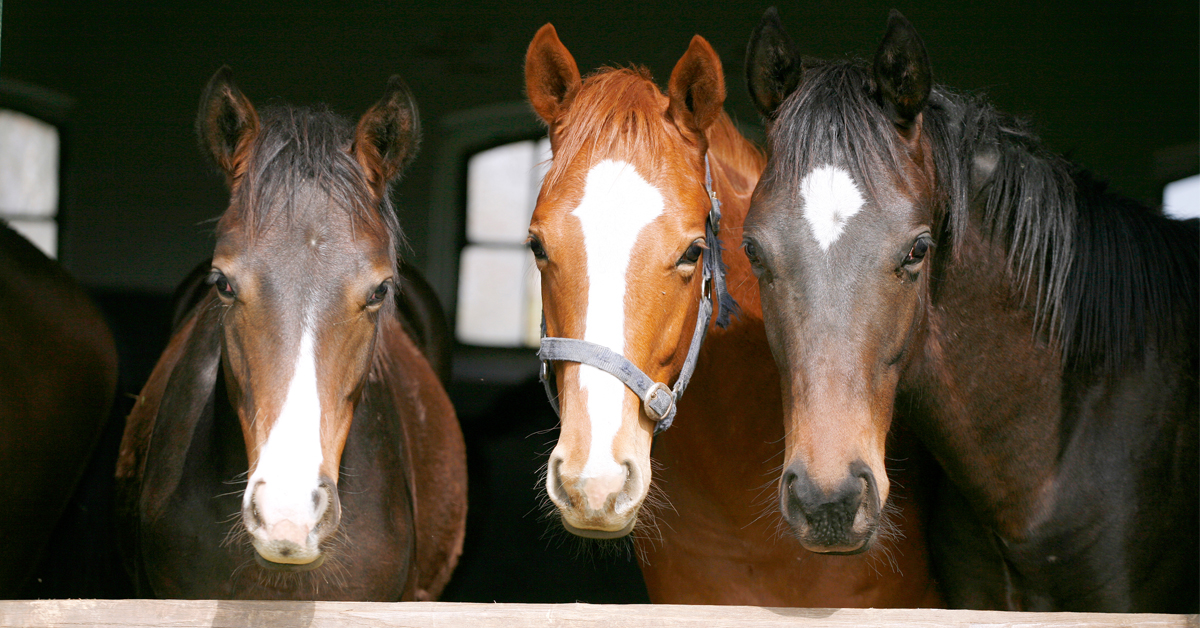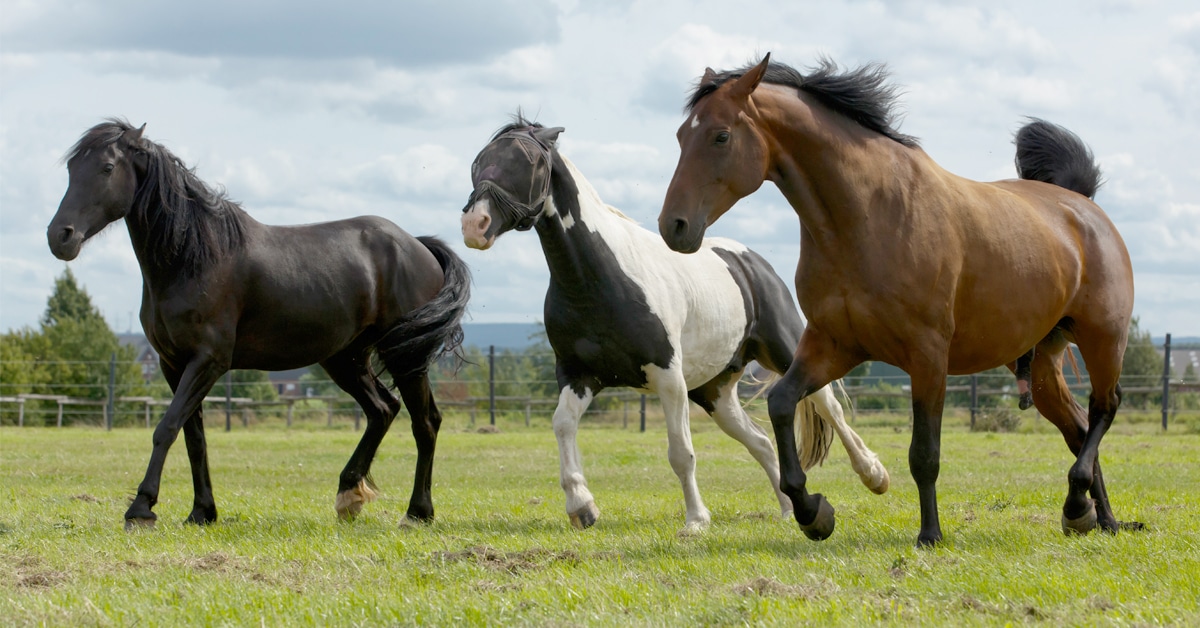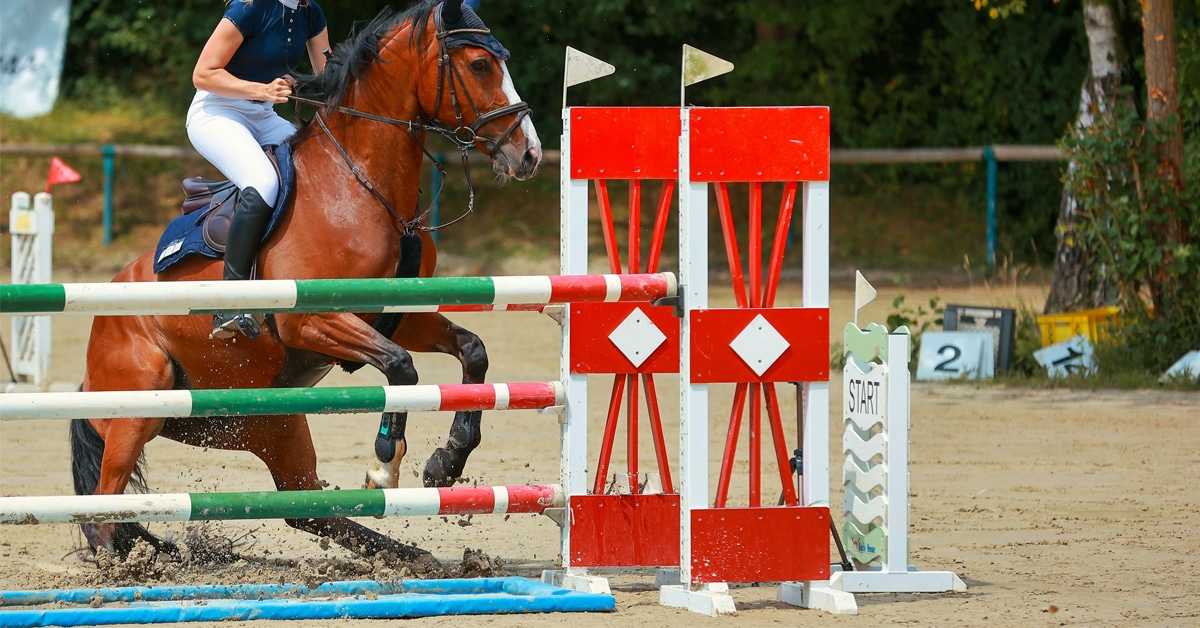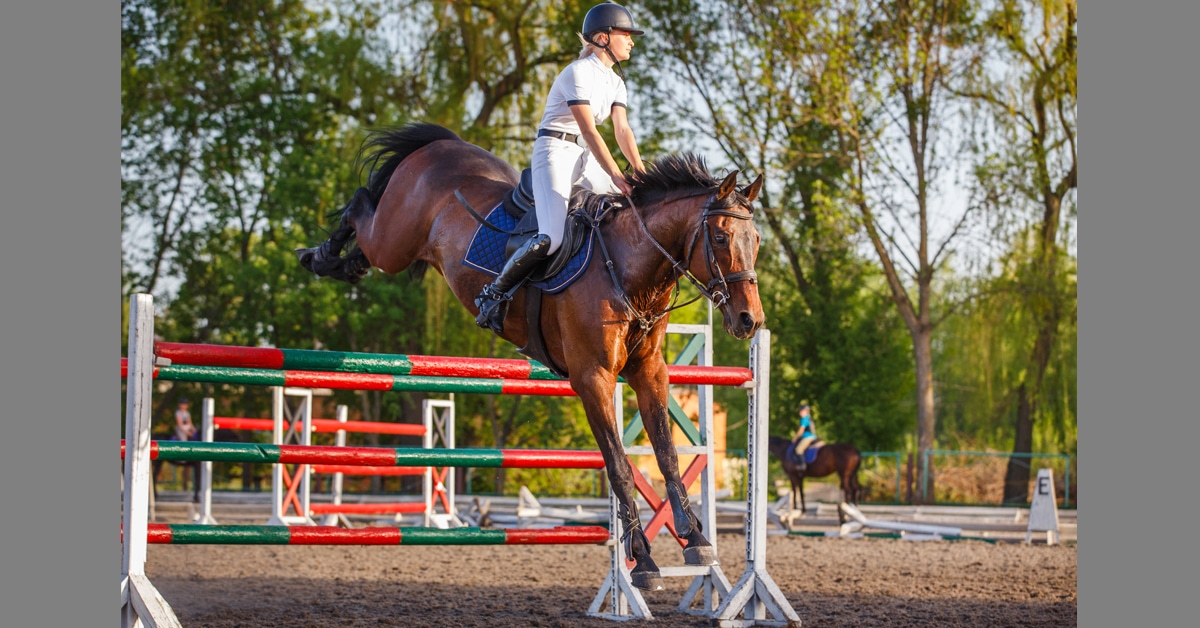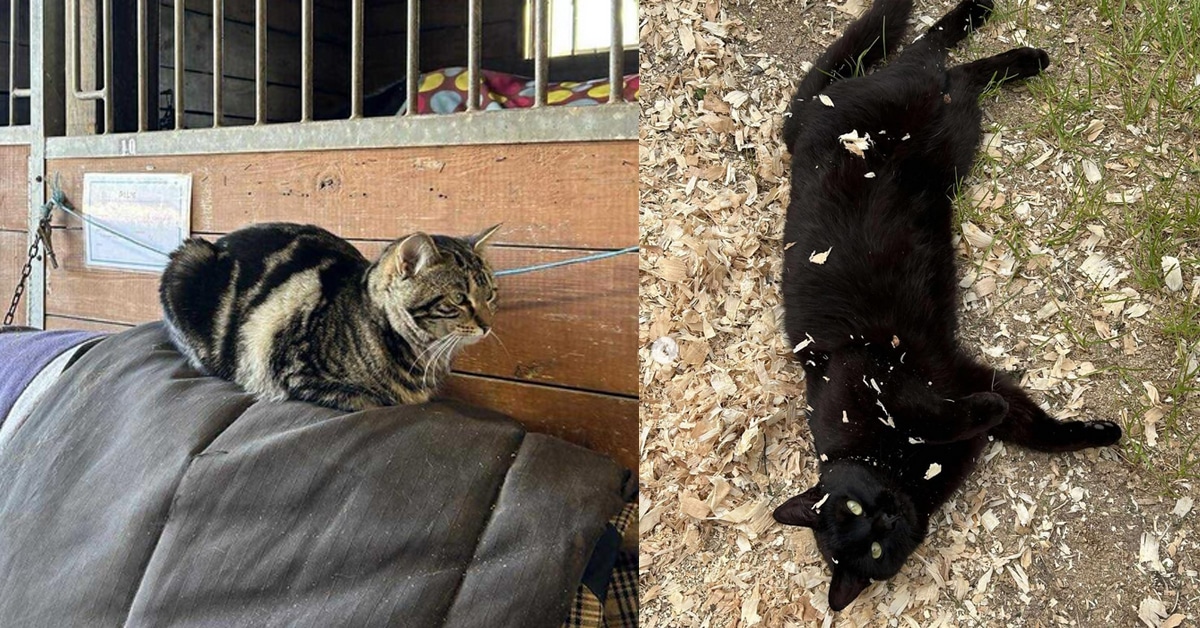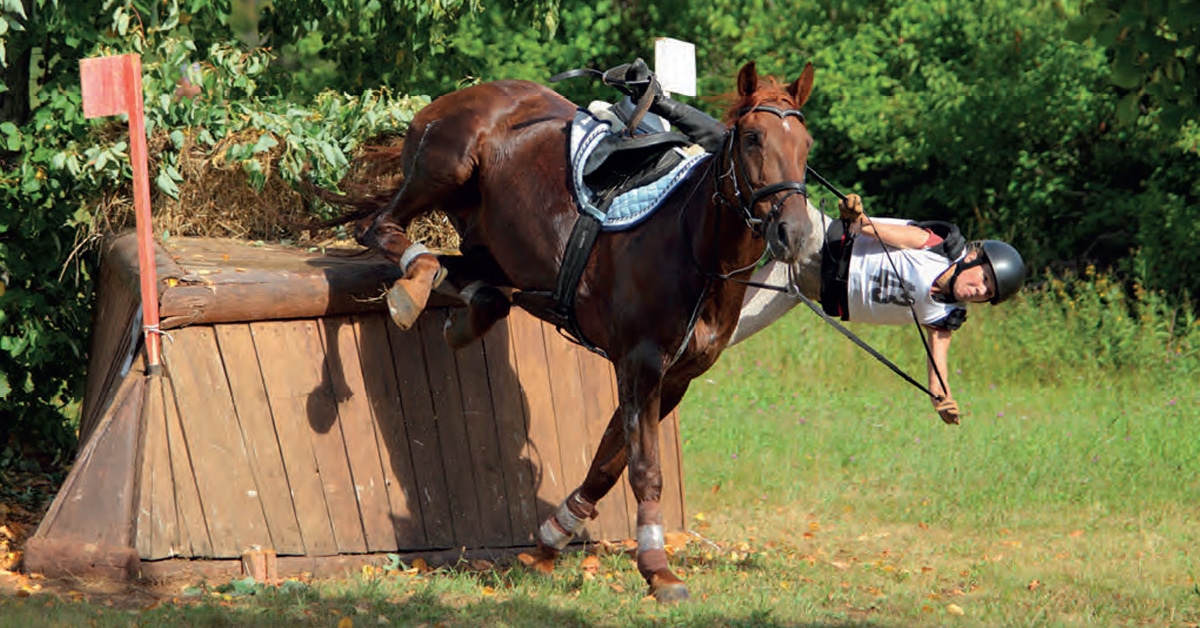Our verbal language can be confusing for horses because they have no idea what our words mean. Horses can be conditioned to words, or certain sounds or tones, but we must always be aware that our strategic thoughts don’t mean anything to them.

When we give verbal expression to our happiness, our tone, a smile, or body language that radiates happiness can convey positive feelings to the horse. We just have to be aware that the words we speak are usually directly connected to our physical stimuli, such as stroking, kissing, or patting. However, there is so far no scientific proof that the horse “understands” that our words and our happiness are a response to the dressage test he just nailed.
A horse’s acoustic language—the sounds that are audible to us—have been examined scientifically and consist of just a few different sounds. There are sounds that are produced via the horse’s larynx and sounds that are produced without the larynx. Vocalizations are important information that is communicated to other herd members.
Acoustic signals are sometimes used in attack and defense rituals, but also to warn of danger or in friendly, playful exchange, as a greeting signal or for recognition. Three vocalizations are very important in EBEC training—the blow through the nostrils, the snort, and the snore. These three vocalizations give us important information about the inner state of the horse in training.
Blow
The blow is a non-pulsating broadband-level sound that results from a short, powerful expulsion of air from the nostrils. Blows can reach an audible range of 98 feet and are an expression of alarm. When a horse blows, it signals danger to all horses within that distance, perhaps—for example—because the horse concerned has discovered an unusual object a few yards away from him.
The average duration of a blow is half a second. It warns all the other horses in the immediate vicinity and informs them that something unknown has been discovered. It triggers an instinctive, unlearned alert in all other horses.
The nostrils dilate fully during this short blow, the mouth is closed, and a brief inability to move during and immediately after the sound is typical. Longer expulsions of air between 0.6 and 1.3 seconds are often emitted afterward, and the olfactory investigation of the unfamiliar object will then follow.
When a horse who is being ridden in the indoor arena hears a blow from a horse who is being led past, outside the arena, he will immediately become nervous. His behavioral response will be directly controlled by his brain, without any of his own cognitive thought processes. He will immediately express his fear physically, maybe by lifting his head and speeding up. He will try to find out what is going on outside and whether there is any reason to take action in the form of fight or flight.
If we punish the horse in this scenario with a sharp tug on the reins, a smack with the whip, or other aggressive consequences, he will still do all he can to find out what is going on outside. He can’t just imagine the worry isn’t there and say, “Oh, sorry, I’m a little distracted at the moment. I totally forgot that we are in the arena and the doors are closed. Even if there is a bear outside, I should still pay attention to you! Sorry I messed up your lateral movement across the diagonal!”
Although they might seem logical from our human perspective, punitive measures in situations like these will not be effective, and the chances of achieving a positive training experience for the rest of the session after using them are low. Stress in horses is a combined psychological and biological behavioral response to either an old, stored experience that has already happened, or new, threatening circumstances.
The physiological behavioral response to stress is an extremely complex topic that has not yet been fully explored, but scientists agree that there are two types of stressors:
- First, physical stressors. These are physical injuries, strains, exhaustion, and changes in the environment.
- Second, psychological stressors. These include situations that cause the horse anxiety, worry, or fear. Science defines uncertainty and fear of the unknown as the two main psychological stressors for horses.
In the situation just described, the horse experiences the latter, a situation of psychological fear, triggered by the blow from the other horse. The horse expresses himself using interspecies communication. Those are the facts.
We as riders can use this scientific knowledge to stay calm and understand the situation from the horse’s point of view. We can then behave in an empathetic and understanding way as we sit on the horse’s back and consider how the horse is expressing himself physically. The positive effect of this is that the horse experiences support, instead of the rider adding even more stress to the already upsetting situation. If the horse’s head and neck are being flexed with the rein contact, the rider could perhaps give forward slightly to make the horse feel that he is in control, and to prevent a conflict caused by the use of force.
When the horse gets too fast, it can be useful to divert his speed onto a circle. The horse is less likely to buck if he can still move forward, because he feels that he can escape the situation. He increases the distance to the blow with his own actions, which gives him a feeling of safety. Either way, the horse will only come back under control and start concentrating again when he can categorize the blow from the other horse.
This behavior is instinctive. The job of the rider is to remain understanding and redirect the horse’s urge to move in as controlled a way as possible until, from the horse’s point of view, the danger is no longer present. As soon as the horse’s focus is back on the rider, work can resume. The rider will be able to feel this as soon as the horse accepts the rein aids again and bends and flexes as he normally does in focused work.
For the few seconds after the blow, the horse is able to perceive neither positive nor negative stimuli. The rider has to accept that she must abandon focused riding at this moment, since “sawing down” the horse’s head, changing to a stronger bit, or using draw-reins or side-reins will not help. It is an unalterable reality that stress hormones in the bloodstream do not allow horses to be receptive to training or instructions.
Snort
The snort vocalization is important because it is often related to our actions. The snort is a broadband-level sound produced by forced exhalation through the nostrils and differs from the blow by an audible, fluttering pulsation of the nostrils that is visible to the rider. The horse’s mouth remains closed during the snort. The average duration of a snort is 0.8 to 0.9 seconds, and it is audible up to a distance of 165 feet.
Snorts occur when the horse’s nose is irritated—for example, by excessive dust in the arena—but also after high physical exertion or when the horse is restless and people are impeding his movement. This happens with excessive bending and flexing during ridden work, or when the horse is contained behind a fence or barrier that he wants to escape but can’t. Scientists emphasize that the snort is a “psychological displacement” whereby the horse attempts to express his unease. At this moment, he is unable or not allowed to give physical expression to his unease through movement. As trainers, we have to make sure that we notice the horse’s snort when we cause him distress. If possible, we should release the horse from the situation so that he can relax and then give us his attention again.

We must then use our ability to think strategically to create a training plan for the horse with the help of the EBEC Pyramid: In the next day’s lesson, we will make sure that the horse’s needs are fulfilled (Level 1). Then we check whether we are decoding the horse’s gestures correctly. We think about how we can apply the learning theories and which rewarding or punitive stimuli will work best. And, in just a few training sessions, we can teach our horse how to behave while turned out by himself or how to deal with whatever triggered the snort when he was being ridden.
When you train the horse well, you will hear the snort less and less frequently. The older and better trained the horse is, and the better we have filled his “personal map” with positive experiences, the fewer conflicts will arise. Horses are extremely willing to learn and adapt.
Snore
The snore is another important signal that we should pay attention to in interspecies communication with horses. It is a broadband-level sound that is like a scratchy inhalation or an in-breath that just happens to be louder than usual. It lasts for around 1.0 to 1.8 seconds. We hear the snore under two circumstances: It is the preliminary sound, the advance warning of an alert blow, and can also be emitted when the horse is lying down.
The snore is important because, when we use EBEC, we concentrate on noticing reactions in the horse before situations escalate—that is, before horses spook or start bucking or rearing, and before stress hormones are released. This is what makes EBEC such an amazing tool; it is quick, safe, effective, and almost invisible. The sooner we recognize things that are unfamiliar or frightening to the horse, the more effectively we can immediately drew up a training plan that reinforces and then builds on the foundations of learning. We can enable the horse to develop his full potential.
Note, the aim is to correctly observe and classify the horse’s gestures as early as possible, but without judging them. We want to take the right actions for the horse, before conflicts, problems, and misunderstandings escalate. This requires self-reflective action. If we notice a snore in training, we know that it is related to a moment of anxiety that we need to diffuse as quickly as possible. For example, we have to improve the horse’s ability to see if there is something he doesn’t recognize in the distance or in his blind spot. Or we may have applied the anxiety-causing stimulus ourselves and need to remove it. When this is the case, we may need to use the EBEC Pyramid to make the unfamiliar, frightening stimulus a familiar, accepted stimulus through appropriate training. If, however, we ignore the horse’s behavior and the anxiety-producing stimulus appears again in the future, in the same or a different form, the horse’s next behavioral response will come sooner and be stronger. We want to avoid allowing such an issue to become established, because with good training, the horse should only be afraid of a few totally unfamiliar, unpredictable things.
The chapter on applying the learning theories from the horse’s perspective explains how to trace the triggering stimulus that causes the horse to blow, snort, or snore, and then create a corresponding training plan to change how the horse behaves the next time a similar scenario is encountered.
***
From the Horse’s Point of View by Andrea Kutsch is available through Trafalgar Square Books here.
The Latest
